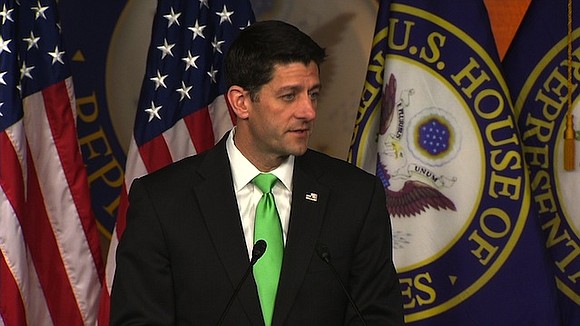Republicans to Leave Town Without Health Care Deal
CNN/Stylemagazine.com Newswire | 4/6/2017, 11:12 a.m.
By Phil Mattingly and Dana Bash
CNN
No deal on legislation to repeal and replace Obamacare is expected before lawmakers head home for a two-week break, putting a cap for now on the on-again, off-again talks that have divided the Republican party.
A senior administration source and two senior GOP congressional aides acknowledged that there's no agreement. And House lawmakers tell CNN they're not changing their travel plans and will leave Washington on Thursday.
The effort to revive the health care bill that faltered late last month manifested itself in a series of closed-door meetings involving Vice President Mike Pence, White House officials and key GOP lawmakers.
The overall dynamics, however, never changed.
Conservatives are set on their wish list and Republicans centrists have made clear those requests go too far. But the way lawmakers and the Trump White House have found themselves in the same exact box canyon they wallowed in as the initial iteration of "repeal and replace" imploded less than two weeks ago is illustrative of complexity that continues to dominate -- and plague -- this internal debate.
Asked for a status check in the wake of the more than two-hour Tuesday evening affair, one GOP official directly involved was blunt: "No closer to a final deal than we were 24 hours ago, and actually, quite possibly further away than we've ever been."
What's driving the current impasse?
Confusion.
Conservatives in the House Freedom Caucus said Monday night they'd been told very specific things were placed on the table by Pence and Office of Management and Budget Director Mick Mulvaney: Giving states the option of applying for waivers to opt out of three central Obamacare requirements -- essential health benefits,community rating and guaranteed issue.
What does that mean? Well, these areas have been identified as crucial by conservatives to reaching their ultimate -- and repeatedly (and repeatedly and repeatedly) stated -- goal: lowering premiums. And that's likely true -- the essential health benefits provision forms the federal floor of what each insurance plan must contain. The guaranteed issue and community rating measures protect those with pre-existing conditions because they require insurers to sell policies to all enrollees, but bar them from charging higher prices to those with health conditions. Community rating also prevents insurers from charging women more.
The trade off in providing more robust coverage to individuals regardless of their health status is an increase in the cost of plans.
In a sense, these changes would directly undercut Republicans' promise to keep Obamacare's protections for those with pre-existing conditions. But conservatives counter that other provisions in the GOP plan, specifically high risk pools funded run by states but seeded with federal money, would essentially back fill the removal of those regulations, should states opt out.
But that's a very, very tough sell to the moderates in the conference, who, according to several who spoke privately with CNN, fear the fallout of including those three opt-out measures in any plan. While amenable to the idea of giving states the option of opting out of essential health benefits, how easily states obtain a waiver remains an open -- and exceedingly important -- question.
On top of that, several sources involved in the process said moderates were caught off guard by the news that the other two regulations were on the table.




